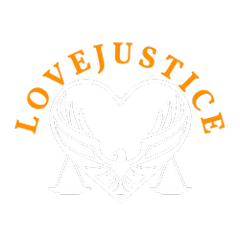Milwaukee Program Prepares First Cohort of Women for Successful Reentry
April 11, 2024 by Edgar Mendez

Diamond Riley plans to pursue a new goal in life once she’s released from the Milwaukee County Community Reintegration Center.
“I want to work with justice-involved youth and young adults and help them overcome the challenges I had,” Riley said. “I found my passion.”
She now has the skills to help her achieve her goal thanks to a workshop that prepares people for successful reentry after incarceration.
In March, Riley, 22, completed Building a Path to Success, a six-week workshop of the My Way Out Program offered to individuals at the Milwaukee County Community Reintegration Center, formerly known as the House of Correction.
Riley, who has a 3-year-old daughter, is one of 12 to graduate as part of the first female cohort of Building a Path To Success, which was first offered to men at the center.
‘We want to humanize reentry’
My Way Out provides a variety of reentry services aimed at helping justice-impacted individuals thrive, according to executive director Ruben Ganoa. Ganoa knows their challenges well, having served time in prison and struggling upon release.
“We want to humanize reentry and give people the tools they need to be successful,” he said.

The classes helped the group learn how to build credit, manage budgets, be a renter, prepare for job interviews and craft resumés, among other tools.
“These are skills that will help them be stable and be successful upon release, which is really important because they are often the main source of income for their family,” Ganoa said.
Bridging the tech gap
The group also received information technology training from the Milky Way Tech Hub, a partner in the program.
Nadiyah Johnson, founder and CEO of the Milky Way Tech Hub, said her organization’s mission is to bridge the tech gap through diversity.
“Working with justice-involved individuals made sense for us,” she said. “I’m here because this was my dream and now I’m helping (the women) achieve theirs.”
Johnson said the women were able to use the technology they learned to develop 12-month plans they can use upon release, and will also receive a free laptop.
Leah Boonnam, 31, a widow and mother of three, said the training helped her refocus on her goal of starting a business.
“I want to help people plan special events, like quinces and weddings,” said Boonnam, who was pursuing a master’s degree in business administration before her life got off track.
She’s now ready to turn that around.
“I’m not going to let my legal mistakes determine my future.”
Rachel Wright, 34, said she loves cars and cooking. The plan she developed through My Way Out was to open a Jamaican restaurant with an attached auto shop. When she’s released in November, she hopes to make her business goal a reality.
“This experience gave us insight on what was possible,” Wright said. “We have a future, we have goals, and now we have more confidence that we can achieve them.”

‘It’s not how you start’
Tahnee Aguirre, a financial security educator for UW-Madison Extension, which provided the rent education and financial literacy classes, said the women already had the tenacity and intelligence to be successful. Now they have a vision.
“Now that they see it and know what they need to do to make it happen, they have a better chance to achieve their goals,” Aguirre said. “Their opportunities are endless.”
Their hopes received a boost during their recent graduation ceremony, as Chantell Jewell, superintendent of the Milwaukee County Community Reintegration Center, announced that the women would be the first program participants to be eligible to receive three months in free housing vouchers upon release.
Jewell told the group that she was a teen mother and that people counted her out, just like how some had counted them out.
“Know your worth and the value of what you bring,” she said. “It’s not how you start but how you finish.”
Support upon release
Although she doesn’t have a release date yet, Melinda Torres, 49, said when she does get out, all she wants to do is live a simple life and take care of her children.
Torres said the workshops were one of few bright spots during her incarceration and that she is thankful that support from My Way Out will continue after her release.
In addition to free laptops, participants will create a personalized reentry plan and receive ongoing services through My Way Out.
Torres believes that support will help her reclaim her life.
“There’s no turning back to the old ways for me,” she said. “I just want to be happy and raise my kids.”
